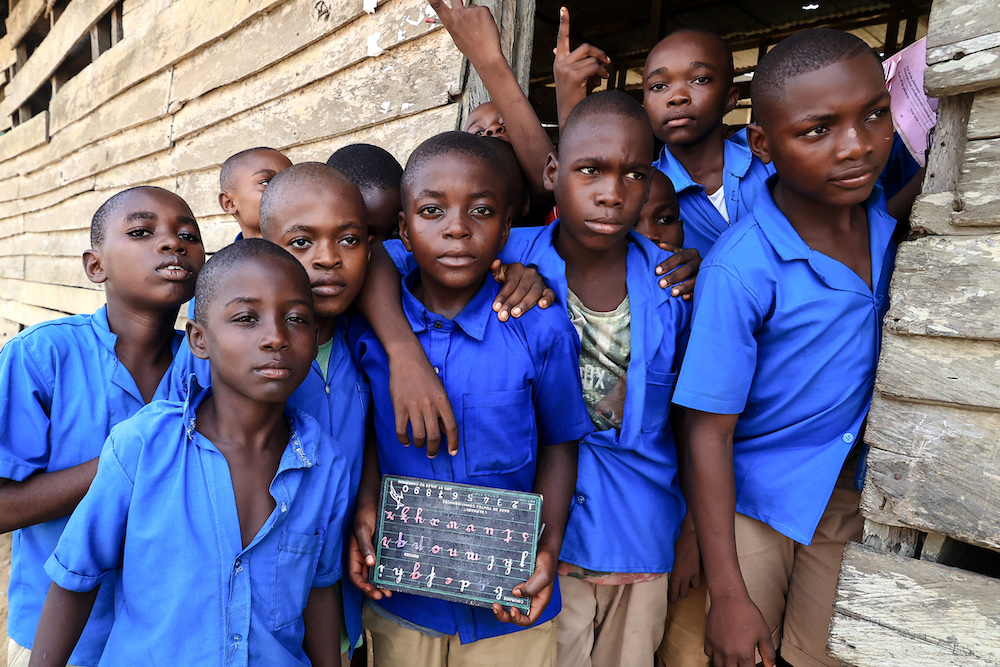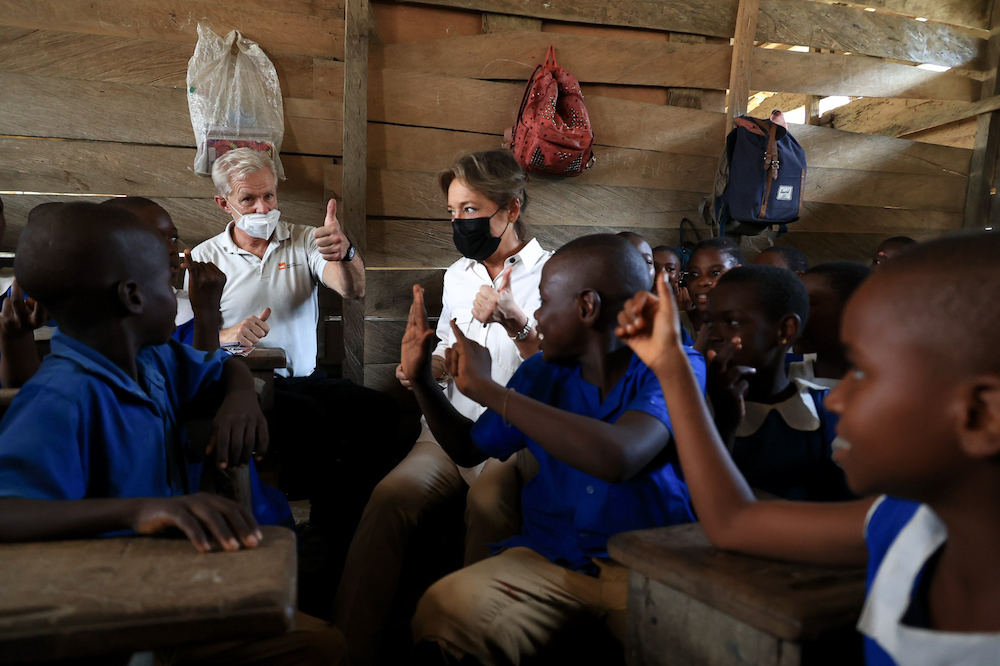
Five things you need to know this week about global education

Child soldiers, Children in conflicts, Early childhood development, Education in emergencies
An urgent call to help children whose schools are shut by conflict in Cameroon, Afghan girls take exams and how books in the childhood home can affect your brain in old age.
Action needed to help 700,000 children in Cameroon
Urgent international funding is needed to help more than 700,000 children whose schools have been closed by conflict in Cameroon.
Two-thirds of schools have been shut in the North-West and South-West regions, according to the United Nations humanitarian agency UNOCHA.
Attacks on education include the killing of four children and a teacher last week in Ekondo Titi. In other incidents, eight students and five head teachers were kidnapped and a girl’s fingers were chopped off after she tried to attend school.

Yasmine Sherif, Director of Education Cannot Wait and Jan Egeland, Secretary General of the Norwegian Refugee Council, meet students at the Souza Gare school in Cameroon (ECW/Daniel Beloumou)
“Putting a schoolbag on your back shouldn’t make you a target. Yet children here risk their lives every day just showing up for school. Cameroon’s education mega-emergency needs international attention, not deadly silence by the outside world,” said Jan Egeland, Secretary General of the Norwegian Refugee Council.
He was talking during a visit to Cameroon with Yasmine Sherif, Director of the Education Cannot Wait (ECW) fund. She said: “Children and youth are having to flee their homes and schools, are threatened with violence and kidnapping, and are being forced into early childhood marriage and recruited into armed groups. We call for urgent support from donors to respond to this forgotten crisis.”
ECW is contributing $25 million over three years to education programmes and is calling for other donors to fill the estimated $50 million gap.
Somalia to enrol 25,000 more primary students
More than 600 primary schools will receive the funding needed to enrol 25,000 out-of-school children in Somalia. It will help them expand access to quality education in underserved areas – particularly for girls, vulnerable children and those with disabilities.
A similar drive last year saw 37,000 children go to school for the first time. Investment in education is essential in Somalia, where only 27% of primary-aged children and 25% of primary-aged girls are in school.
The grants from the country’s national and state education ministries are supported by the Global Partnership for Education (GPE). They will also help to expand schools’ infrastructure and allow them to take on additional students in future.
Alice Albright, CEO of the GPE, said: “Families, schools and governments are struggling to cope with the impact of the pandemic. This funding will help get more children into classrooms and support efforts to transform the education system to be more equitable and inclusive.”
Afghan girls take exams despite school ban
Hundreds of Afghan girls took entrance exams in Kabul – despite the Taliban stopping girls from returning to secondary education.
About 3,500 students sat exams for the Afghan-Turk school system run by a Turkish foundation, with girls making up almost 40% of candidates.
“We want all girls to be educated. This is our president’s and our government’s wish and that of Afghans,” said Changez Idmir, Educational Councillor at Kabul’s Turkish Embassy.
Afghan-Turk schools are highly regarded and admission is very competitive. But they have had to make changes to their curriculum – shutting music, theatre and dance departments at the request of Taliban officials.
School crucial in cutting child recruitment
One in eight of the world’s children – more than 330 million – live in conflict zones where they are at risk of becoming child soldiers. That’s three times the rate in 1990, according to a new report.
Save the Children said increasing school access is vital in fighting forced recruitment by armed groups and government forces.
“It’s simply horrifying that in the shadow of Covid-19 and the UN’s call for a global ceasefire, more children than ever before are caught in the crosshairs of the deadliest war zones … and more likely to be injured, recruited or killed,” said Inger Ashing, Save the Children International’s chief executive.
The charity said lack of educational opportunities is a leading cause of children being recruited – a problem been made worse by the pandemic shutting down schools.
Childhood books can affect how brain ages
It’s widely known that early learning is crucial in laying the foundations for a child’s education and giving them the skills needed to succeed in later life.
But a new study reveals that the environment in a child’s home also affects brain function in old age. Researchers at the University of Haifa in Israel found that the more books there were in childhood homes, the slower the decline in cognitive function in old age.
Exposure to books – not necessarily reading them – is key, they said. It can increase the cognitive abilities of children who learn to enjoy reading, acquiring education and other cognitive skills.
“Developing cognitive abilities in childhood can produce ‘reserves’ that protect the brain from degeneration in old age,” said Dr Galit Weinstein, the study’s editor.
More news

